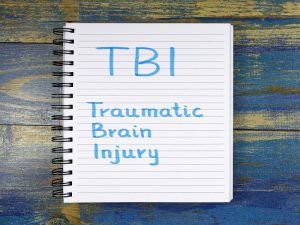A traumatic brain injury is diagnosed when a serious blow, jolt, or type of penetration damages the head and disrupts the normal function of the brain. Although not every head injury results in a TBI, millions of traumatic brain injuries take place in America every year.
A TBI can range from “mild” to “severe,” depending on the type of injury and how long it takes for the brain to return to its normal mental status. In the case of a mild TBI, the person’s mental status only changes briefly. They may black out for a short amount of time or develop a concussion, but they return to consciousness fairly quickly. With a severe TBI, a person may remain unconscious for an extended period of time, and even experience amnesia once they finally wake up.
Just because a mild traumatic brain injury is not as serious or life-impacting as a severe one does not mean it’s something to ignore. Mild cases are the most common form of TBI, and they are often overlooked at first because the person does not lose consciousness for long. However, as time progresses, worrisome symptoms may begin to emerge, including:
- Unexplained mood changes
- Slowness or difficulty when speaking and thinking
- Sensitivity to bright light and loud noises
- Nausea, and potentially confusion
If any of these symptoms present themselves after you or someone you know experiences a head injury, don’t brush them off – seek medical attention immediately. A preliminary diagnosis may have missed the TBI, but the sooner you receive proper help, the easier life will become.
Learn more about mild traumatic brain injuries, as well as severe ones, by joining the non-profit organization called TryMunity. They provide an online community where people affected by TBI can seek support, knowledge, and understanding. Sign up today at www.trymunity.com.


 If you or a loved one has suffered a TBI (traumatic brain injury), then the holidays can unfortunately be a time of stress and overwhelming sensations. When other people enjoy twinkling lights, TBI survivors feel overly-stimulated and anxious. While others are enjoying a Christmas shopping spree, TBI survivors are battling panic attacks as well as the crowds.
If you or a loved one has suffered a TBI (traumatic brain injury), then the holidays can unfortunately be a time of stress and overwhelming sensations. When other people enjoy twinkling lights, TBI survivors feel overly-stimulated and anxious. While others are enjoying a Christmas shopping spree, TBI survivors are battling panic attacks as well as the crowds. 
